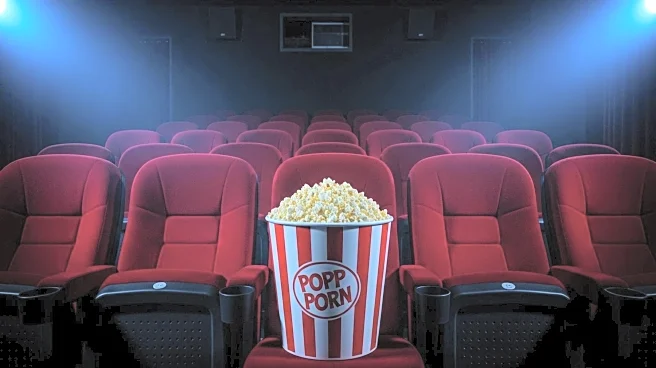What's Happening?
NBCUniversal Chairman of Entertainment & Studios, Donna Langley, addressed the changing dynamics in the film industry during a discussion at the Toronto International Film Festival (TIFF). Langley highlighted the growing popularity of horror films, noting a shift in audience preferences post-pandemic. She referenced the success of Focus Features' Nosferatu and other horror films like Warner Bros' Sinners and NEON's Longlegs as indicators of this trend. Langley emphasized that contemporary horror reflects societal changes and is increasingly embraced by auteur directors. She also discussed the viability of four-quadrant movies, citing Wicked as an example of a film appealing to a broad audience, albeit with a strong female demographic. Langley pointed out the importance of large format screens, such as Imax, in attracting younger audiences who are willing to pay a premium for enhanced viewing experiences.
Why It's Important?
The shift towards horror films signifies a broader change in audience tastes, impacting how studios plan their feature slates. This trend could lead to increased investment in horror and genre-specific films, potentially altering the landscape of mainstream cinema. Studios like Universal are recognizing the value of original storytelling, which can lead to significant box office success, as demonstrated by Christopher Nolan's Oppenheimer. The emphasis on premium viewing experiences, such as Imax, highlights the evolving expectations of younger moviegoers, who are becoming a crucial demographic for the film industry. This shift may influence how studios allocate resources and prioritize projects, potentially leading to more diverse and innovative content.
What's Next?
As audience preferences continue to evolve, studios may increasingly focus on developing horror and genre-specific films to capitalize on this trend. The competition for premium screen formats like Imax is expected to intensify, with studios vying for these screens during opening weekends. Universal's strategy of supporting original films could set a precedent for other studios, encouraging them to invest in unique storytelling rather than relying solely on established franchises. The industry may also see a rise in collaborations with auteur directors who bring fresh perspectives to horror and other genres.
Beyond the Headlines
The growing popularity of horror films could have cultural implications, reflecting societal anxieties and changes. As horror becomes a mainstream genre, it may influence other forms of media and entertainment, potentially leading to a broader acceptance of unconventional narratives. This trend might also encourage filmmakers to explore more diverse themes and storytelling techniques, contributing to a richer cinematic landscape.









